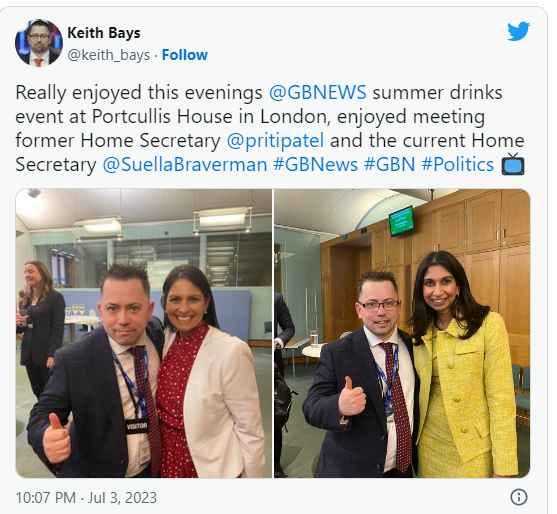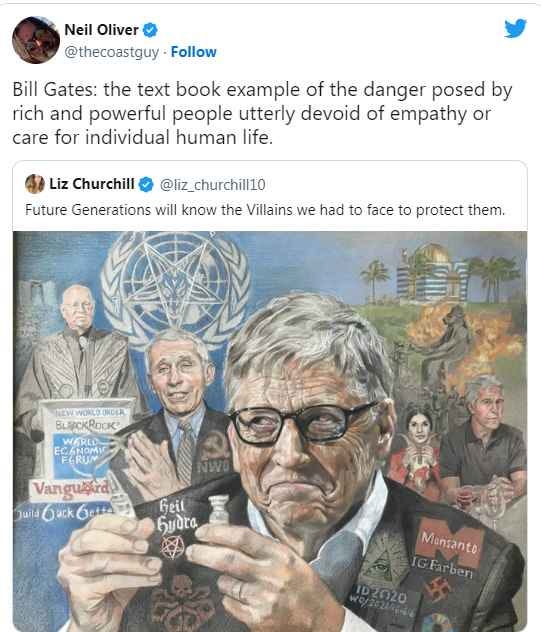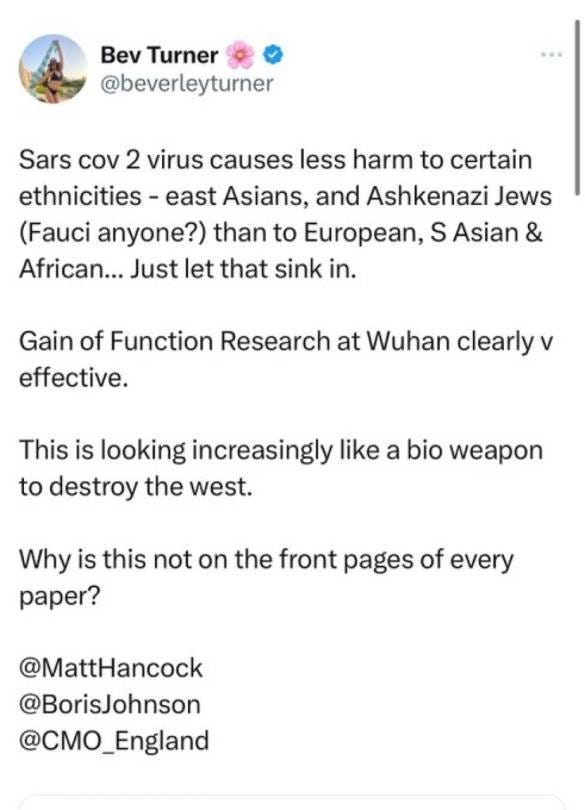I’ve always had a soft spot for the BBC. It probably started with Hector’s House, Z Cars, and The Magic Roundabout. Or the Play for Today and the Wednesday Play, which hosted some of the most original and cutting edge drama that has ever appeared on television.
Or it might have been John Arlott’s soft Hampshire burr on long summer days when the cricket was always on all day. Or the years when I lived in Spain in the 1990s, and did freelance radio work for the World Service. Occasionally I would visit Broadcasting House to record a longer programme I was presenting.
These were the days of tape, and I used to watch awestruck as BBC producers expertly sliced and spliced spools to isolate quotes and remove non sequiturs. I also appreciated the streak of creativity running through the World Service, which meant that you could pitch ideas for any kind of content - particularly anything to do with art and culture - and you would at least get a hearing.
In 1999 I attended a BBC writing workshop, where a producer played us an old clip from the fifties, in which a very posh presenter introduced a piece of music by intoning ‘This. Is. A. Symphony’ before explaining what a symphony was, in the cut glass accent of coronation-era Britain. This was long before Stuart Hall, Richard Hoggart and the Centre for Contemporary Cultural Studies opened up the notion of what culture was and could be.
The BBC’s presentation was condescending, paternalistic, and earnestly Reithian, in its determination to educate a public that the speaker clearly assumed to be seriously ignorant and in need of education from its betters.
We all laughed, but we laughed affectionately. Because we knew the BBC was a mass of contradictions. Though it comes second only to the Royal Family as an iconic British institution and an expression of post-imperial ‘soft power’, it has found space over the years for genuinely subversive and iconoclastic writers like Ken Loach, Alan Clarke, David Hare, Stephen Poliakov, Mike Leigh, Buchi Emecheta, Shane Meadows, Michaela Coel and Phoebe Waller-Bridge.
Though it can be pompous, po-faced, pedestrian, middle-of-the-road, and drearily conservative, it can also be brilliant, creative, challenging, and trail-blazing. Some of that affection has vanished - on my part at least - on realising the extent of managerial collusion in the crimes of Jimmy Savile or Rolf Harris.
But I don’t damn the entire institution because of its management, and the BBC was hardly unique in this respect. In these dystopian ‘post-truth’ times, I’ve often despaired of the BBC’s willingness to find ‘balance’ by bringing in the most dubious rightwing contrarians and thinktank operatives. To my mind the BBC played a major role in the rise of UKIP, Nigel Farage, and Brexit - though fat lot of thanks they got for it.
I don’t even watch BBC News any more. I find it too superficial and too politically timid, and too beholden to government talking points. This might be due to the endless Tory bullying, or the presence of Tory placemen such as Robbie Gibb and the utterly shameless Richard Sharp in the upper echelons of the organisation.
Whatever the reasons, I look for news and commentary elsewhere. But I still watch stunning documentaries such as David Olusoga’s Black and British, Once Upon a Time in Iraq and Once Upon a Time in Northern Ireland, or the harrowing Inside the Iranian Uprising. And I can’t help noticing that the Tory Party and the far-right - a gap that is currently narrower than a piece of cigarette paper - seem to absolutely loathe the BBC, and looks for any reason to undermine and discredit it.
The Huw Edwards scandal is the latest example of this. I have no political loyalty whatsoever to Edwards. I’m sympathetic to his predicament - up to a point. But even though the sordid details that have become public reveal no evidence of criminality, they certainly exude a distinct odour of exploitation that must surely be sackable.
And yet from the moment the Sun broke this story, the Tory/hard right nexus has been all over it, defending the Sun’s reporting, attacking the BBC management, and generally behaving as if a sinkhole had just swallowed London. Priti Patel felt the need to comment on it. Even Sunak - the same man who hasn’t even the guts to appear in parliament to defend the Privileges Committee - took time out of a NATO summit to make his insipid voice heard.
Day after day, rightwing Twitterati raged at the ‘hypocrisy’ of the BBC in not investigating Edwards, even though the organization was in fact investigating him. Or else they accused the ‘left’ - in other words everyone who is not them - of double standards because they weren’t as outraged at the Edwards story as the right thought they should be.
Literally every rightwing commentator, presenter, and troll from the Daily Mail to GB News was at it. ‘If Huw Edwards was a GB News presenter, the liberal left would be screaming for his head,’ howled Toby Young. ‘ But because he’s a pillar of the BBC…’ you get the drift.
Brendan O’Neill, naturellement, was also working his usual arid contrarian seam with a piece on ‘Huw Edwards and the hypocrisy of the elites.’ Paul Embery was in on the act. Dan Wootton - well there’s a story isn’t there? - also put his few cents in, now deleted from Twitter.
On and on it went, like a thousand screeching crows descending on the sleep of reason. But there is method in this madness. We know that the Murdoch outlets want to damage the BBC because it interferes with Murdoch’s business model.
The politicians and pundits who flocked to the Sun’s story like flies to a dungheap have other motives. One of them is fairly straightforward: they resent and also envy the power and influence of a national broadcasting service that is not sufficiently in thrall to their cultural and political agenda.
The Resistible Rise of GB News
Despite the regular flow of Tory placemen at the top, they believe the BBC is infected with the ‘woke’ virus. They want something like Fox News. More specifically, they want GB News.
There was a time when many of us laughed at GB News, as a succession of mad-looking presenters in murky 70s-era studios read aloud letters from Hugh Janus and Ivor Bigcock. Even Andrew Neill bailed from the horrorshow, though he probably regrets it now, and the rest of us looked forward to its prompt demise.
In these times, happy political endings are few and far between, and we had not foreseen how fervently a collapsing Conservative Party would embrace GB News as its own propaganda channel. Or that four serving Tory MPs would present their own programmes on GB News- the first time this has ever happened in the history of British broadcasting.
Who, in their wildest dystopian nightmares, could have imagined that Lee Anderson would shoot a promotional video for his £100,000-per-year show on the rooftop terrace of parliament itself?
Only this week the Tory MP Caroline Dinenage hosted a parliamentary drinks party for the channel, which included guests like this:
Bear in mind that GB news has breached broadcasting rules on two occasions; that Hope not Hate has accused the channel of providing a platform for ‘the far right, conspiracy theorists, and racists’; that its presenters traffic in messages like this:
And this:
None of this seems to have bothered the MPs who present on the channel, or the two home secretaries who attended the party, or Dinenage. Earlier this year, Dinenage was a guest on GB News, where she told Esther McVey and her husband that ‘The BBC has become the emblem, the token of the battle in the culture wars. It is really in an existential crisis at the moment about its future.’
This interview was given before Dinenage was elected chair of the House of Commons culture select committee, which is currently looking at the government’s proposed media legislation, including changes to impartiality requirements. Whatever Dinenage’s take on ‘partiality’ is, the fact that someone in her position would invite a fringe rightwing tv channel for a private party in parliament is an indication of how far GB News has come since the days of Ivor BigCock.
This is a channel with seemingly endless amounts of money - so much that it has even lured some of the mischievous little scamps at Novara Media to grace its studios with their august Gramscian intellects. It’s a channel that is clearly seeking to become the British Fox News, and it’s doing this with the full-throated support of the mainstream and not-so-mainstream right.
To say this is not very Reithian would be understating it considerably. In order to achieve this kind of dominance, and for the politicians concerned to achieve the access to their would-be voters that GB News gives them, the BBC must go, or at least be weakened, hollowed out, and gutted of its liberal-wokeist tendencies.
This week none other than David Frost or ‘Lord’ Frost as we are now obliged to call him, entered the fray. Having spent too much time on Twitter, I’m used to hearing Frosty the Nomark enter pretty much every fray, and none of what he ever has to say is particularly interesting.
Nevertheless, I was genuinely surprised to hear the Great Man paraphrasing Matthew Arnold, because Frost is just not the kind of guy I can imagine poring over Culture and Anarchy or Dover Beach. He did this in an article in the Telegraph, (paywalled) in which he accused the BBC of a ‘colossal sense of self-absorption and self-regard’ (Pot. Kettle. Black), because it had spent too much time covering ‘the woes of Huw Edwards.’
One can only imagine what Frost and the Telegraph would have said if the BBC had spent no time covering the Edwards story. Baron Blowhard then accused the BBC of not fulfilling its ‘public interest’ remit, and singled out Marianna Spring’s ‘absurd, but dangerous “disinformation” team’ as an attack on free speech.
Without pausing to consider that reporting on disinformation is not the same as banning it, His Lordship moved on:
That can’t be sustained. Instead, it [the BBC] should stand for genuine excellence: high-quality, impartial, factual news; presenting and funding the Western canon of serious music, art, theatre and drama, literature; serious history and science; and, yes, serious politics
Serious politics. From Frost. In the Telegraph. And then we get this:
The BBC once created the best that had been made, written, or thought. Now it seems ashamed of it. It doesn’t even make available for viewing Lord Clark’s great series Civilisation (though it is on YouTube), though it made an embarrassing, ideologically loaded substitute a few years back, and has left it to organisations such as the New Culture Forum, with its superb new series The West, to fill the gap.
This is where Matthew Arnold comes in. The actual quote comes from Culture and Anarchy, where Arnold defines his belief in culture as
the great help out of our present difficulties; culture being a pursuit of our total perfection by means of getting to know, on all the matters which most concern us, the best which has been thought and said in the world, and, through this knowledge, turning a stream of fresh and free thought upon our stock notions and habits, which we now follow staunchly but mechanically …
The idea that the ‘best’ culture makes a society better is quite Reithian in a way. But Frost’s idea of the ‘best’ notably doesn’t include ‘the world.’ For him, the best is only the West, and any attempt to look beyond that is ‘embarrassing’ and ‘ideologically loaded.’
Having seen and admired the BBC’s superb revisiting of Clark’s landmark programmes, in the series Civilisations (note the plural here) presented by Simon Schama, Mary Beard, David Olusoga and others, I have to say - and I’m not at all surprised to find myself saying it - that Baron Blowhard is talking out of his arse.
Rather than consider how this series might widen our understanding of culture and civilization, or consider the existence of other civilizations, or listen to what some of the finest historians and cultural commentators of our era have to say about these matters, Frost recommends watching reruns of Civilisation, and if you can’t do that - because the woke BBC ‘doesn’t make it available’ then you can watch The West - a series produced by the New Culture Forum.
The NCF is an old culture war thinktank formed by Peter Whittle, UKIP’s former cultural spokesman. It has a Youtube channel, on which Whittle has interviewed the likes of Lionel Shriver, Claire Fox, James Delingpole and Charles Moore.
The West was made by Marc Sidwell, director of research at the Henry Jackson Society, and it explains its intention to explore ‘the history, achievements and genius of Western civilisation. Inspired by legendary TV programmes such as Civilisation, Kenneth Clark's 1969 masterpiece, The West is a bold reminder of who we are - and why our culture is worth defending.’
‘Who we are…Our culture…defending.’ If this sounds like culture war, it’s because it probably is. Matthew Arnold once argued that
all the love of our neighbour, the impulses towards action, help, and beneficence, the desire for stopping human error, clearing human confusion, and diminishing the sum of human misery, the noble aspiration to leave the world better and happier than we found it—motives eminently such as are called social—come in as part of the grounds of culture.
We can question whether or not that is true, and whether ‘culture’, in the sense that Arnold understood it, really is the essential ingredient that makes these things possible. But it is an admirable and even noble objective that has nothing to with culture as Baron Frost and his culture warrior pals understand it.
They don’t want us to be better or happier, or more knowledgeable or more thoughtful, or prevent human error, let alone diminish the sum of human misery. They just want us to feel proud and British, in the sense of ‘Great’ British, and also ‘Western’.
Anything else is political correctness gone mad, or as Sidwell puts it ‘the long march of the left’ through our institutions. And that is one more reason why they want the BBC gone, or stripped of its ideological excesses.
If that happens, then the barbarians really will have triumphed, and, as Arnold might have put it, we will be truly ‘Swept with confused alarms of struggle and flight/Where ignorant armies clash by night.’
Which is one more reason why I will always defend the BBC, with all its flaws, over all the puerile and self-interested attempts these people make to destroy it. Because I know that if I want to seek out ‘the best that has been thought or said in the world’, I will always have a better chance of finding it at the BBC than I ever will at GB News, or the reactionary wasteland that Baron Frost and his pals inhabit.
And if I have to choose between Dan Wootton and Reith, I’ll take Reith.
Every time.








Fine article which will pay rereading.
BBC news coverage has detiorated: Victoria Derbyshire retailing gossip about Huw Edwards the other night was truly disgraceful. And now we have Farage, that well known defender of free speech, contriving to turn his spat with Coutts into an attack on the for having reported what Coutts told them about their reason for closing his account.
The lesson is that however deep you crawl in the muck the forces of the right will never be satisfied.
Great article Matt. People like yourself are an inspiration to me, although I appreciate that saying this might be detrimental to your reputation. I was at one point in favour of defunding the BBC, but your essay persuaded me otherwise. BBC news has become the worst of the worst and I no longer trust its coverage. Much as it pains me to say this, it is has become the sockpuppet of the most right-wing government in British history.